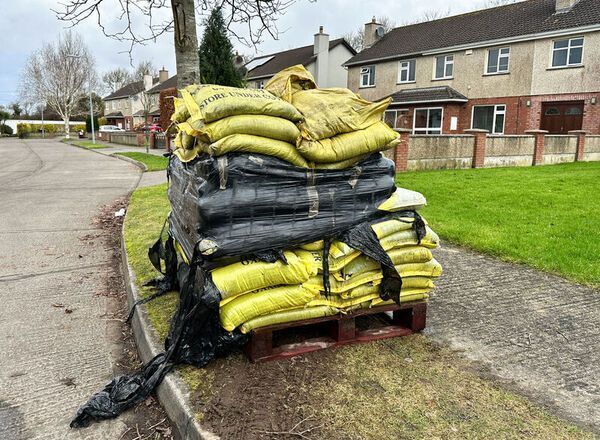Slowly, but inexorably, the penny is dropping, both here in the United States as well as back in Ireland.
The Boston College subpoenas seeking access to oral history interviews with former IRA activists on behalf of the police in Northern Ireland are about the dumbest things that have ever happened in the long relationship between the United States, Britain and Ireland.
The difficulty is not how to describe why they are so dumb, but in counting the ways in which they are so dumb.
First of all, this is not the way in which to heal a conflict like that in the North of Ireland.
Over 3,000 people died and tens of thousands were scarred, physically and mentally, by a war that was undoubtedly one of the longest and most violent, if not the most violent in Irish history.
But the war has now ended, peace reigns and there is a desperate need for dealing with the past in a way that solidifies that peace and ensures an untroubled future.
The British have chosen a way that does the opposite. The Boston College subpoenas symbolize an approach to this issue based on revenge and the view that alleged combatants in that war should be dragged before the courts, convicted and jailed.
To do this, they created a special police unit, the Historical Enquiries Team (HET), put it under the control of the Police Service of Northern Ireland (PSNI) and authorized it to dig up evidence to support criminal prosecutions.
The emphasis in this approach is on retribution and punishment. Yet anyone who has had dealings with victims of the violence in Northern Ireland knows full well that most just want to know what happened to their loved ones. Who killed their father, brother, son, mother, sister, wife? Why did they do it, and did their loved one suffer?
There are exceptions of course but most I have had dealings with seek the truth, not revenge, and I strongly suspect they are in the majority.
What they want most of all is a proper truth recovery process. South Africa provided one model, a truth and reconciliation commission in which perpetrators were offered an amnesty in return for full candor about their deeds.
They could have chosen the British version and opted to scratch away at barely closed wounds but did not, knowing that to do so would mean that South Africa could never put the past behind it, that the past would continue to haunt the present and the future with catastrophic consequences for all South Africans.
The second way in which the Boston College subpoenas are dumb is because they are so politically stupid. Ostensibly, the subpoenas are in pursuit of the perpetrators of the murder of Jean McConville, but anyone who is familiar with the case knows that it is really about
getting Gerry Adams who is alleged to have given the order to "disappear" Mrs McConville, an accused spy for the British Army.
Whatever one may think of Gerry Adams and his misguided efforts to deny any past association with the IRA, the reality is that Northern Ireland would not now be enjoying peace without his efforts.
He may have been less than straightforward with his IRA comrades; he may even have been duplicitous and furtive in his dealings with them, or
have exaggerated the political benefits of the Good Friday Agreement, but the stark truth is that he did bring this awful war, this endless bloodshed, to an end. I doubt that anyone else could have.
Yet the logic of the Boston College subpoenas is to drag him before the criminal or civil courts and stain him with the McConville murder. So the architect of a peace process centered on compromise ends his political life arraigned or sued for murder courtesy of the same government with whom he compromised. And this is supposed to cement the peace in Northern Ireland?
What message does that send to IRA dissidents who have long accused Adams and his colleagues of naivety in their dealings with the British? What they will say is this: "You trusted the Brits, Gerry. You accepted their deal and their terms and now look what they are doing to you? Once they had you where they wanted you to be, they stuck the knife into you."
And this is supposed to strengthen the peace in Northern Ireland? If this is the logic behind the Boston College subpoenas then truly the lunatics are now running the asylum.
There will be those, of course, who will say that if Gerry Adams did order Jean McConville's "disappearance" then he deserves to be prosecuted. In a normal society, one ruled by a normal government, that would be a difficult argument to answer. But Northern Ireland is not, even with the peace process, a normal society and nowhere is this more evident than in the administration of justice.
The plain, undeniable fact is that there are double standards in the way justice is doled out in Northern Ireland.
As myself and researcher Anthony McIntyre were battling in the Boston courts against the PSNI subpoenas last fall, the British prime minister, David Cameron, summoned the family of slain Belfast attorney, Patrick Finucane to Downing Street. Finucane had been shot dead by loyalist gunmen in 1989 but it is now widely accepted that British intelligence and the police in Northern Ireland, the Royal Ulster Constabulary (RUC), had foreknowledge of the murder plot and allowed it to happen. Finucane was a legal thorn in their flesh and what better way to remove it than by way of loyalist bullets?
Such was the concern about this level of collusion in an attorney's murder, not least here in the United States, that Cameron's predecessor, Tony Blair, was obliged to announce that there would be a public inquiry into Pat Finucane's slaying and we would all get to know just what part the RUC and British spooks had played in this dirty deed.
But Cameron's summoning of the Finucane family was not to tell them of a date for the beginning of this inquiry, but to inform them that he was withdrawing Tony Blair's promise. There would be no inquiry into Finucane's death.
So those who say that the PSNI has a right to rummage through Boston College's files for the names of the killers of Jean McConville must also justify the denial of that same right to Pat Finucane's family to scour the files of MI5 and the RUC Special Branch for the names of those who colluded with his killers?
Pat Finucane was a high profile victim of the Troubles in Northern Ireland, but not so Patrick McCullough. Who is Patrick McCullough, I can almost hear the reader ask? Well, he was a 17-year-old Catholic boy, just starting his first job in life, when he was shot dead in a loyalist drive-by shooting near his North Belfast home.
Patrick died in June 1972, six months before Jean McConville was "disappeared" by the IRA. No-one has ever been held accountable for his killing and, unlike Jean McConville, there has been next to no publicity about his killing. He was his parents' first-born and most loved child, the first of fifteen children when his life was suddenly and brutally ended. His mother and father never recovered from his death, and their loss was every bit as tragic and wrong as that suffered by Jean McConville's family.
I learned about Patrick McCullough's death from a poignant letter his younger brother, Fr. James McCullough, a member of the missionary Kiltegan Fathers, wrote recently to the Irish Times newspaper seeking an inquiry into official indifference towards his brother's killing. I contacted the priest to talk about his experience.
When his brother was killed, the police never once visited the family home to tell them what was happening in the investigation. The only visit the family had from the security forces was shortly after the funeral when their home was raided by the British army. Fr. McCullough suspects that their purpose was to plant weapons in the home so as to justify his brother's murder.
When the British government set up the Historical Enquiries Team, Fr. McCullough wrote to the then PSNI Chef Constable, Sir Hugh Orde. His letter was forwarded to the HET which wrote to him saying they would be in touch. That was in 2006. Since then, neither Fr. McCullough nor any of his family have heard a word from the HET or the PSNI. He described his treatment at the hands of the PSNI and the HET as "abysmal."
The killers of Patrick McCullough are well known. An investigation in 2003 by the Belfast newspaper, the Irish News, discovered their identity while noting that no-one had ever been arrested or charged. Recently, the reporter who wrote the story confirmed to me that neither the HET, nor the PSNI, had ever contacted her to discover their names. There have been no subpoenas for Patrick McCullough.
The silence from the police lasted until Fr. McCullough's letter appeared in the Irish Times. Then, suddenly, he was phoned by an HET investigator who offered a meeting. When Fr. McCullough complained about the indifference shown by the RUC towards his brother, the HET man replied, according to Fr. McCullough: "......that he had never experienced sectarianism in the RUC or PSNI."
On the HET's promotional video, the unit's commander, former Scotland Yard detective Dave Cox, addressed the issue of how the HET dealt with
allegations of police collusion in murders in this way: "Most times we are able to actually answer and dispel those worries."
In other words, it never really happened.
This is the last and most compelling reason why the Boston College subpoenas are not only dumb, but morally wrong. The HET is not a fit and proper body to deal with Northern Ireland's past because it operates double standards. And Attorney General Eric Holder and the Department of Justice should not be helping these people do their dirty work in Boston.
It is up to Irish America to make sure Holder gets that message.








